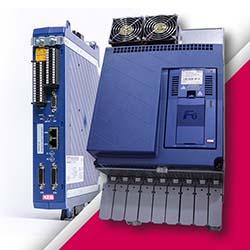INFICON’s ELT Vmax Leak Detector Enables Accurate, Non-destructive Battery Testing at Production Speeds
INFICON, a leading global provider of leak-detection solutions, will demonstrate its ELT Vmax leak testing system at The Battery Show North America (booth #4215), Oct. 6-9, 2025, in Detroit.
Manufacturers can meet the highest safety and performance standards with the ELT Vmax, which detects microscopic electrolyte leaks in lithium-ion and sodium-ion battery cells and fully assembled modules.
The ELT Vmax system enables accurate, non-destructive leak detection at production speeds, giving battery manufacturers a critical tool for safeguarding long-term reliability. Built on INFICON's patented Direct Electrolyte Leak Detection method, the ELT Vmax identifies leaks at line speed from filled cellsand complete battery modules, which few alternatives can achieve.
"The ELT Vmax combines high-sensitivity, non-destructive testing with a streamlined design that accelerates leak detection," said Thomas Parker, INFICON's automotive market sales manager. "By capturing even the smallest leaks, it gives EV battery manufacturers the assurance needed to safeguard performance, extend service life, and comply with stringent industry requirements."
Parker said, to conduct the process, cells and modules are placed into precision vacuum chambers, where the ELT Vmax detects leaks as small as single-digit micrometer diameters, equivalent to a helium leak rate of 5∙10â»8 mbar∙l/s. This level of sensitivity, which is comparable to detecting a single drop of water over several months, saves manufacturers valuable time by confirming integrity before lengthy electrical testing.
The ELT Vmax can connect to several vacuum test chambers, eliminating waiting times for evacuation and venting. It also supports testing cells in batches, which further maximizes throughput.
Meeting the Growing Need for Standards
In addition to providing systems for detecting EV battery leaks, INFICON is involved on the industry level regarding the establishment of clear testing standards for EV battery production in North America. As battery production continues to expand rapidly, SAE International's Battery Standards Testing Committee in 2025 has created J3277-1 and J3337 standards, which now guide electrolyte leakage testing at production line speeds.
These standards bring North America in line with best practices already established in other global regions, ensuring higher safety and quality benchmarks for cells, modules, and packs throughout the manufacturing and assembly process. A subject-matter expert from INFICON who sits on the Battery Standards Testing Committee is available at The Battery Show to discuss these standards and other issues related to EV battery testing.
About INFICON:
INFICON is a leading provider of innovative instrumentation, critical sensor technologies, and Smart Manufacturing/Industry 4.0 software solutions that enhance productivity and quality of tools, processes, and complete factories.
These analysis, measurement and control products are also essential for gas leak detection in air conditioning/refrigeration, and automotive manufacturing. Other users of vacuum-based processes include the life sciences, research, aerospace, packaging, heat treatment, laser cutting and many other industrial processes. We also leverage our expertise in vacuum technology to provide unique, toxic chemical analysis products for emergency response, security, and environmental monitoring.
INFICON is headquartered in Switzerland and has world-class manufacturing facilities in Europe, the United States and China, with subsidiaries on three continents.
For more information, please visit www.inficon.com or contact reachus@inficon.com.
###
Media Contacts:
Michael Scholl
Cannell Scholl Communications
michaelscholl628@gmail.com
+1 (248) 885-3145
Severine Grimberg
INFICON GmbH
Severine.Grimberg@inficon.com
Featured Product

KEB VFDs for High Speed Motor Control
KEB's VFDs are the key to unlocking peak performance in your high-speed machinery. Engineered for precision control, even without feedback sensors, our F6 and S6 drives utilize advanced software and high-frequency output. This ensures smooth operation, reduced vibration, and optimal efficiency. Whether you're building turbo blowers, power generation systems, or other high-speed applications, KEB VFDs deliver the reliability and performance you need.
